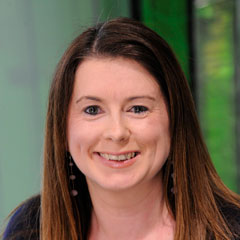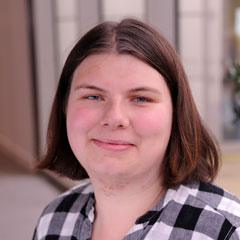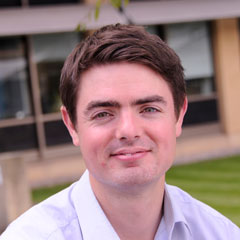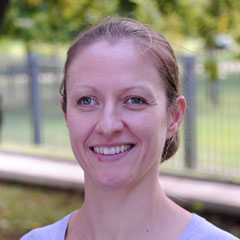Next Generation Sequencing
5–12 April 2019
Wellcome Genome Campus, UK
Hands-on training in the latest next generation sequencing systems.
Summary
Next generation sequencing has become the premier tool in genetic and genomic analysis. This laboratory-based course is directed at scientists who will be generating and interpreting sequence information in their research and wish to gain a better understanding of the techniques involved and their applications. This course is not meant to replace the manufacturers’ training normally supplied with new instruments, nor is it intended to be a training course for those solely interested in next generation sequencing bioinformatics.
The course will include theoretical and practical information on all of the next-generation sequencing systems available and those on the near horizon. The laboratory element will cover a mix of technologies that will be determined nearer the time, but will be chosen from platforms including,
- PacBio
- Illumina Miseq/HiSeq
- Oxford Nanopore MinION
A key aim of the course is to allow participants to make informed decisions about which technology to apply to solve specific research questions they may face in the future. A variety of applications will be covered as time permits, e.g., RNA-Seq, target enrichment, bacterial sequencing, cancer genomics, human variation analysis, etc. All the basic techniques of post-sequencing analysis will be covered, QC, alignment, assembly, variant calling, etc.
Please note: For the data analysis components of the course, applicants will require a working knowledge of the UNIX/Linux operating system. This can be obtained by various methods and will be enforced. There are numerous online introductory tutorials to the UNIX/Linux operating system and command line, including:
http://www.ee.surrey.ac.uk/Teaching/Unix
http://swcarpentry.github.io/shell-novice/
Programme
The programme will include lecture and practical laboratory/computer-based sessions covering the following topics:
Library Prep
- Making libraries from samples
- Both theory and practical sessions
Sequencing
- Overview: Motivation and fundamental concepts
- Detailed description of prominent sequencing technologies: current and future (3rd generation) platforms
- Hands-on laboratory work: preparing chips for sequencing and performing sequencing runs on various platforms
Data analysis
- Data QC: How to determine if a run has performed well
- Alignment to a reference, de-novo assembly, SNP and structural variant-calling of next generation DNA and RNA data
- IT and data storage problems
Accompanying the lecture and practical sessions will be a series of seminars by invited speakers, who will highlight their ground-breaking work in the applications of next generation sequencing.
Learning Outcomes
On completion of the course, participants should be able to:
- prepare high quality libraries for NGS
- set up a sequencing run
- critically assess a sequencing run and distinguish between good and poor quality data
- appreciate the advantages and disadvantages of different sequencing technologies
- process data, align and call variants
Instructors and speakers
Course instructors

Tony Cox
Wellcome Sanger Institute, UK

Jacqueline Keane
Wellcome Sanger Institute, UK

Michael Quail
Wellcome Sanger Institute, UK
Guest speakers

Lia Chappell
Wellcome Sanger Institute, UK

Daniel Gaffney
Wellcome Sanger Institute, UK

Naomi Park
Wellcome Sanger Institute, UK
How to apply
Prerequisites
Applicants should be postdoctoral scientists, senior PhD students or junior faculty members actively engaged in or soon to commence research involving next generation sequencing instrumentation.
For the data analysis components of the course, applicants will require a working knowledge of the UNIX/Linux operating system. This can be obtained by various methods and will be enforced. There are numerous online introductory tutorials to the UNIX/Linux operating system and command line, including:
http://www.ee.surrey.ac.uk/Teaching/Unix
http://swcarpentry.github.io/shell-novice/
How to Apply
Please complete the online application form. Places are limited and will be awarded on merit. If you have any problems with the online application process, please contact us.
Please note: Applications must be supported by a recommendation from a scientific or clinical sponsor (e.g. supervisor, line manager or head of department). A request for a supporting statement will be sent to your nominated sponsor automatically during the application process. Applicants must ensure that their sponsor provides this supporting statement by the application deadline. Applications without a supporting statement cannot be considered.
Travel visas
Successful applicants will be provided with a support letter for their visa application, if required.
Please visit the following websites for further information on visiting the UK:
Cost
| Cost | Accommodation / meals | |
| *Course fee | £1100 | This is a residential course and the fee includes all accommodation and meals. |
*The course fee is subsidised and applies to non-commercial applicants. Please contact us for the commercial fee.
Bursaries
Limited bursaries are available (up to 50% reduction on the course fee) and are awarded on merit. If you would like to apply for a bursary, please complete the bursary section of the online application form.
Where there are many bursary applications, the selection committee may issue smaller amounts.
Bursaries can be applied for as part of the course application form. Applicants will be notified of a bursary award along with their place on the course, usually within one month of the application deadline. The decision of the selection committee is final.
Please note that both the applicant and sponsor are required to provide a justification for the bursary as part of the application.
Additional funding opportunities
Visit our support page for additional financial support currently available.
Accommodation services phishing scam – please be vigilant. More information.
Testimonials
Feedback from the 2018 course
“I would like to thank the organizers for such an amazing course! It was truly a wonderful experience, the instructors were very helpful and skilled, lectures and practicals were fascinating and the social events made the whole course really fun!”
“Carry on with the great work you do. This course was by far the most well organised course I have ever attended.”
“A very good course as it covered both the laboratory and the bioinformatics sections. It is one of the kind. Keep up the good work.”
“The best genetics and bioinformatics training I’ve attended so far. It has changed my perception of genetic study.”
“Thank you for organising such a fascinating week! I have really enjoyed the course and meeting such wonderful people. I have truly been inspired by my week with you.”

